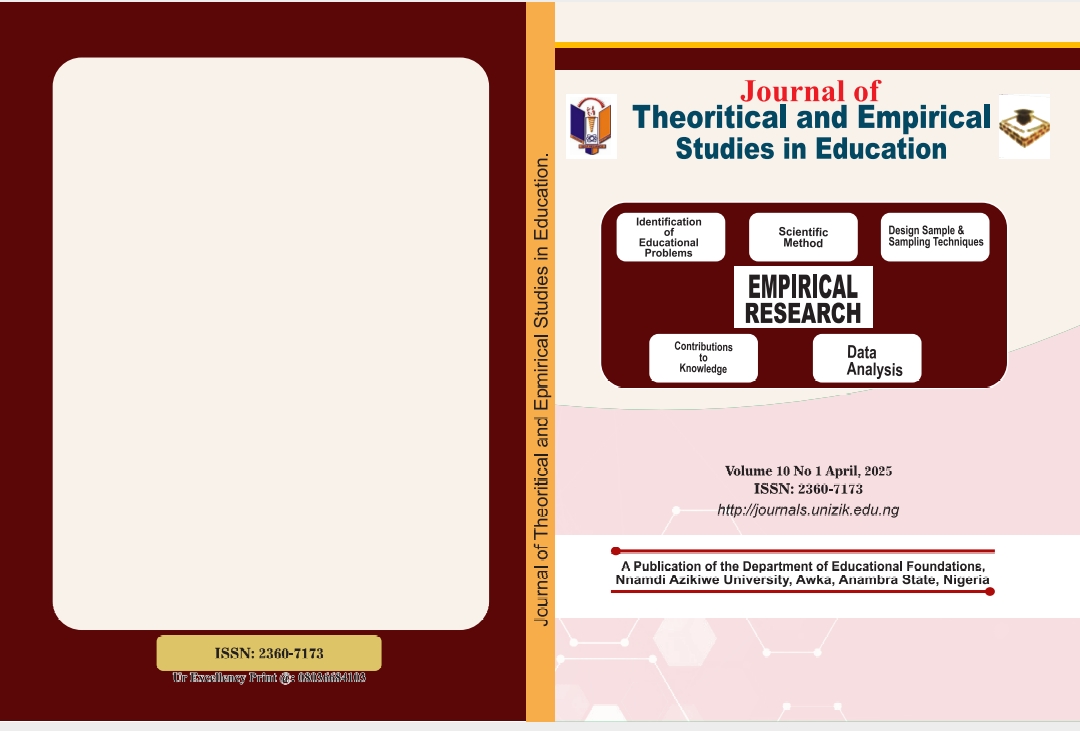PRINCIPALS’ MANAGERIAL COMPETENCIES IN NIGERIAN PUBLIC SENIOR SECONDARY SCHOOLS: CHALLENGES AND PROSPECTS
Keywords:
Principals, Managerial Competencies, Public Senior Secondary Schools, Challenges, Prospects.Abstract
The role of principals in Nigerian public senior secondary schools is essential in ensuring effective school administration and improved student outcomes. However, several challenges hinder their managerial competencies, affecting overall school
performance. This study examines the key managerial competencies required for effective school leadership, the challenges principals face, and potential strategies to enhance their effectiveness. Challenges identified include inadequate professional development, limited autonomy in decision-making, financial constraints, staff
management issues, and policy implementation difficulties. These factors collectively impact the ability of principals to exercise leadership effectively and achieve institutional goals. Despite these challenges, several prospects exist for improving principals’ managerial competencies. Strengthening capacity-building initiatives, granting greater leadership autonomy, increasing funding, integrating technology in school management, and fostering stakeholder collaboration are essential strategies for enhancing school leadership. This paper also provides policy recommendations, emphasizing the need for government intervention, improved
training programs, and stronger community engagement in school administration. In conclusion, addressing these challenges requires a multi-faceted approach involving policymakers, school management, and other stakeholders to ensure that
principals are well-equipped to lead effectively. By enhancing their managerial competencies, public senior secondary schools in Nigeria can achieve better administrative efficiency and improved educational outcomes.




